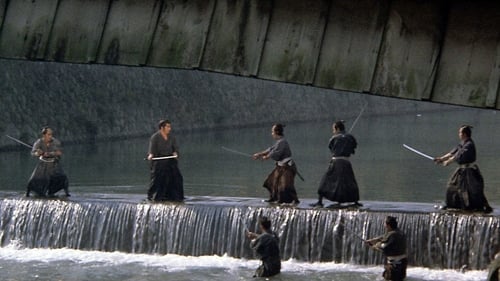
Nesse primeiro filme da série, baseada no mangá de Kazuo Koike, nos é contada a história por trás da origem do Lobo Solitário. Ogami Itto, o executor oficial do xogunato, é vítima de uma armação, feita pelo clã Yagyu, que o fez parecer desleal ao regime a que servia. Pai e filho, então, partem em uma batalha contra o clã Yagyu.

Soft-Boiled Goro is a 1970 film directed by Kazuo Ikehiro

A coward boy fencer becomes invisible and matchless through a magic pill.

BLOOD END is one of the great unknown films from Japan's golden era of the late 1960's. Starring NAKADAI Tatsuya in one of his best roles, this is the story of the Mito Tengu Group who attempted to overthrow the Shogunate at the beginning of the Bakumatsu Period. Their political aspirations led to countless assassinations, as well as senseless killing of innocent people who got in their way. Sentaro (NAKADAI), a farmer who's been severely beaten for his outspoken defiance of the government and the high taxes during a time of famine is befriended by one of the group's leaders, KADA Gentaro (KATO Go) and joins up. This is the masterpiece of director YAMAMOTO Satsuo (who is best known for the first film in the NINJA, BAND OF ASSASSINS series) the erstwhile 'Leftist' director, who used his films to make his political points. Stunning fight choreography, and ultra-violence make this one of the bloodiest films of that era. A powerful film Rare classic!

Set up to be the patsy by a rival gang, Furuta Makoto attacks the yakuza boss he thinks is responsible for his father’s murder. He then learns it was all a plot to take over his father’s turf and he seeks vengeance against the puppet master behind the entire conspiracy. His quest for justice leads him to prison where he must fend off the attack of a master assassin before he can make his escape and go after the true killer!

The film portrays a satirical view of today's heartless money-oriented society.

On the night of the summer Obon festival, Hagiwara Shinzaburo meets a beautiful courtesan named Otsuyu. Not knowing she's a ghost, he becomes infatuated by her.
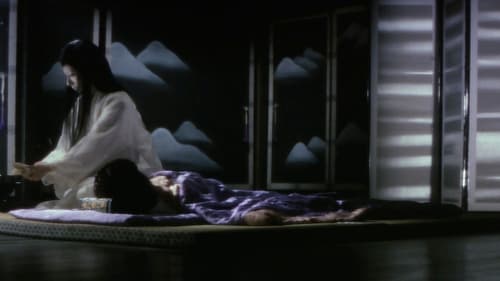
A master sculptor and his apprentice are trapped in a bad snow storm after finding a special tree for carving a statue for the local temple. Finding refuge in an abandoned hut they celebrate their luck in finding the tree but soon they are visited by the Snow Witch who freezes the sculptor to death but takes pity on the apprentice. He must promise to never speak of this or she'll return and kill him.
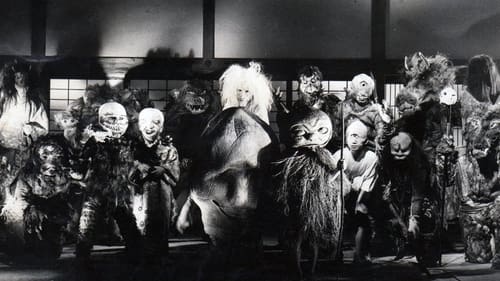
A greedy developer, in league with a corrupt Shrine Magistrate, brutally tries to drive people out of a tenement building and destroy the shrine in back. But he makes the fatal mistake of hosting a 100 Ghost Stories ceremony without the closing cleansing ritual, opening the door for the Yokai Monsters to punish the wicked.

A former soldier, reduced to working at a restaurant post-war, becomes a contract killer for the yakuza gangs he's in contact with.

A sequel to the popular "The School of Spies", this film continues the adventures of one of the graduates who is assigned to crack a powerful spy ring working out of Kobe. Various people are suspected but, finally, it seems that an Army captain and his geisha friend might lead them to the ring.
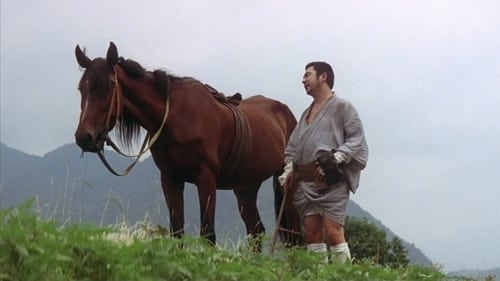
Zatoichi's trek through 88 temples to atone for his violent past is interrupted as he stumbles into a village terrorized by a violent yakuza boss.
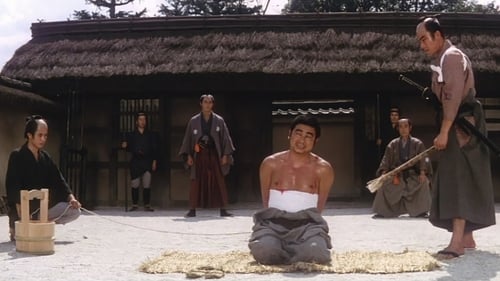
Blind swordsman Zatoichi, jailed briefly, is implored by another prisoner to aid him in proving his innocence of a crime for which he is sentenced to death. Zatoichi is reluctant to get involved, because he knows how often such involvement has led to trouble in the past. But events conspire to thrust him repeatedly into involvement, and gradually he comes to believe in the man's innocence and determines to free him.

Abare inu is a 1965 action-comedy film directed by Kazuo Mori. It is the fourth film in the series.

Sixth film in the series. A little boy who just wants to be a carpenter is at the center of a plot that might topple -- or save -- a mighty Clan, and while the swords of some angry samurai may not cause Kyoshiro much trouble, the deadly wiles of two women may be more difficult to survive!

Ronin samurai Ibuki-san enters a town and sells his skills to the warring families. He falls in love with the beautiful horse stable owner but like all heroes, cannot stay.
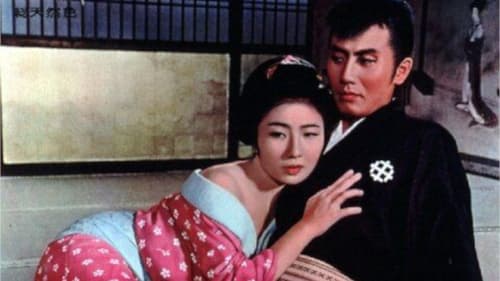
A fugitive christian "saint" (female, of course!) and a sadistic drug-addled princess both have their eye on Kyoshiro. The fact that a bunch of ruthless smugglers also want him dead is the least of his problems!

A decapitation at the hands of the shogun's monstrous misbegotten son kicks off the action and draws nomadic Nemuri Kyoshiro (Raizô Ichikawa) into more sword-fighting adventures when he's blamed for the beheading. Meanwhile, the head-chopper's mother is busy knocking off the shogun's lawful heirs to secure the shogunate for her son.

Wandering samurai Nemuri Kyoshiro (Raizô Ichikawa) finds a bulls-eye on his back after befriending the shogunate's tightfisted financial adviser, Asahina, who's earned the wrath of the shogun's self-indulgent daughter for cutting off her allowance. The enraged princess promptly hatches a scheme to have Asahina bumped off -- along with his protector, Kyoshiro. Shiho Fujimura also stars in this installment of the enormously popular film series.

больной раб
Yoso is truly a lost classic, set in the Nara Era (710-794), from Kinugasa Teinosuke the same writer/director who gave us the recognized classic Gate of Hell (Jigokumon, 1952) & the milestone silent surrealist masterpiece A Page of Madness (Kurutta Ippeji, 1926).
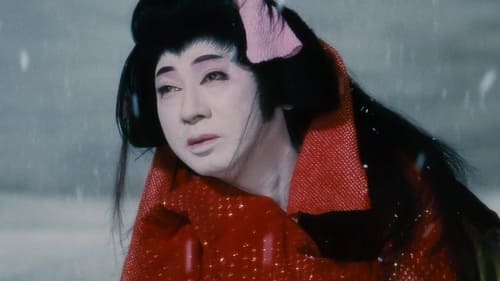
Em uma excursão com seu grupo de teatro kabuku, Yukinojo, ator principal da trupe, acaba cruzando com os três homens que levaram seus pais ao suicídio, 20 anos antes. Yukinojo então trama sua vingança, primeiro seduzindo a filha de um deles e depois os levando à ruína.
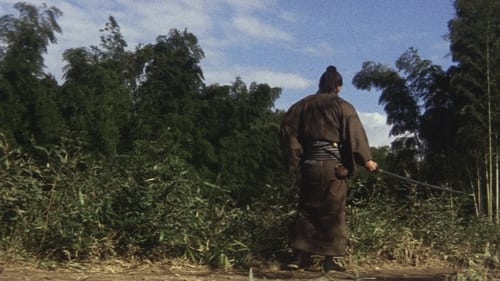
As winds of change sweep Japan, an honest man joins the Shinsenhumi out of admiration for its leader and because he wants to live and die as a samurai. However, as his involvement grows, reality and idealism come into deadly conflict.

The Fencing Master tells the story of a man trying to survive as the only world he knows is becoming increasingly irrelevant. Danpei Ichikawa lives for swordfighting – he was once a renowned kabuki swordfight choreographer, and as the Chairman of the New National Theatre Company, he wants nothing more than to choreograph the swordfights for the modern plays put on by the company.
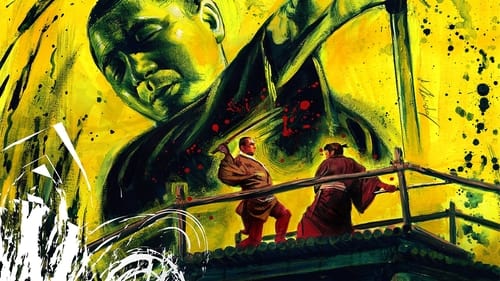
A farmer
As aventuras de um massagista cego, que por acaso também é um mestre espadachim.
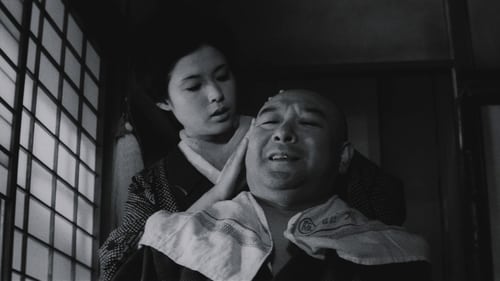
Kôta Nishikawa
Satoko is a mistress by trade or fate: when her master, the silkscreen artist of the Kohoan Temple in Kyoto, dies, she is given to the temple's lascivious head priest Kikuchi. She is drawn to a melancholy young acolyte, Jinen, who has observed the profligacy of his cruel master and Satoko's utter dependence on the man. Jinen is both fascinated and disturbed by Satoko's interest in him; he is similarly caught between loathing of Kikuchi and of the dark circumstances of his birth and his own moral weakness. The story unfolds in a dreamlike manner—a flashback inspired by a now-infamous image on a silkscreen in the souvenir shop at the so-called Temple of the Wild Geese.

Man in crowd 4
Um príncipe indiano deixa seu mundo de conforto e riquezas para vagar e meditar por seis anos em busca de iluminação espiritual. Siddartha (Cojoin Hong) vira as costas à velha religião quando as pessoas estão morrendo de fome desnecessariamente e os rituais sagrados incluem sacrifícios humanos. Durante suas meditações, ele é tentado por dançarinas eróticas, demônios e as maquinações malignas de seu primo criminoso. Devastate para atingir a perfeição espiritual e se tornar o Buda. Ele viaja para converter seguidores por sua bondade e sabedoria, ganhando uma multidão de crentes quando impede um elefante de esmagar um padre local. É claro que Buda se tornou um dos grandes líderes religiosos do mundo.

One of Japan's most popular stories is the tale of Kutsukake Tokijiro, a traveling gambler who finds that he must take care of the wife and child of a yakuza he had been forced by the code of the gamblers to fight man to man. In a brilliant performance from super-star Ichikawa Raizo, with strong support from two of the greats from Toho, Shimura Takashi (7 Samurai) and Aratama Michiyo (Sword of Doom) the heartfelt story reaches new heights. Tokijiro, having learned the true nature of the boss to whom he was obligated for having spent a night and eaten at the gang's headquarters takes up arms against them in a running battle fought across the back roads of the entire nation. Another powerful rendition of this superb story, it is not to be missed!
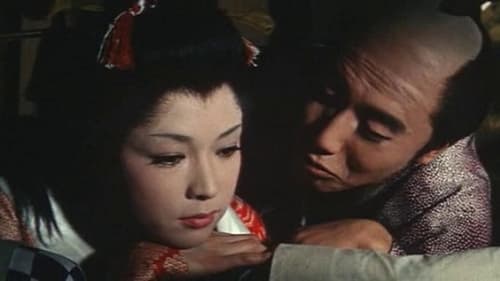
Fascinated with women from an early age, Yonosuke had his first sexual encounter at the age of seven. From that day on, he recklessly and forwardly pursues women, feeding his fascination and experience. As Yonosuke's salacious behavior brings much cause for shame to the family, his father eventually breaks relations with him. Expelled from the family, 19-year-old Yonosuke embarks on a pilgrimage of lust, traveling far and wide to acquaint himself with women of all walks.

The exciting story of Jirocho and his yakuza gang that controlled the area of the Tokaido during the latter days of the samurai era. Awesome fighting from Katsu Shintaro as One-Eyed Ishimatsu highlights this great tale taken from Japanese history!

Gempachi

Last part of the Snake Woman trilogy.

Rokuzô
Early film directed by Kenji Misumi.

Film adaption by Kenji Misumi

Early film by Kenji Misumi.
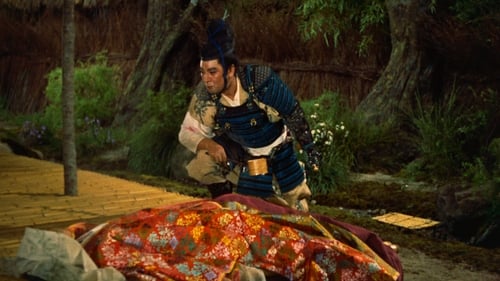
Cowboy
Em 1159, durante uma tentativa de golpe contra a realeza, arma-se um plano para que a família real possa fugir. Uma senhora da corte aproveita a situação e se faz passar de esposa de um Lorde para sair da cidade. Ela conta com a ajuda de um samurai, que a escolta com segurança. Mais tarde, o samurai pede ao Lorde como recompensa a mão desta mulher em casamento. Mas ele descobre que ela já é casada. O samurai não irá desistir e chegará a desafiar o marido de sua amada para que a deixe, o que irá gerar trágicas consequências.
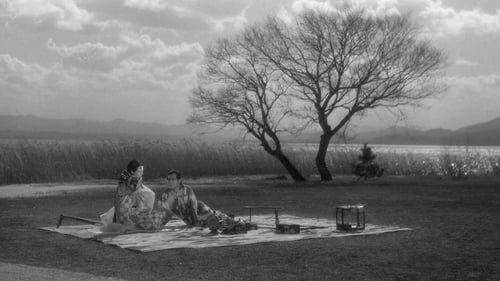
No Japão do século 16, os camponeses Genjuro e Tobei vendem as suas panelas de barro para um grupo de soldados numa vila próxima, desafiando a advertência de um sábio local contra a tentativa de lucrar com a guerra. A busca de Genjuro por riquezas e a misteriosa Lady Wakasa, assim como o desejo de Tobei de se tornar um samurai, correm o risco de destruir tanto a si quanto as suas esposas, Miyagi e Ohama.

Jida-geki by Santaro Marune.

























